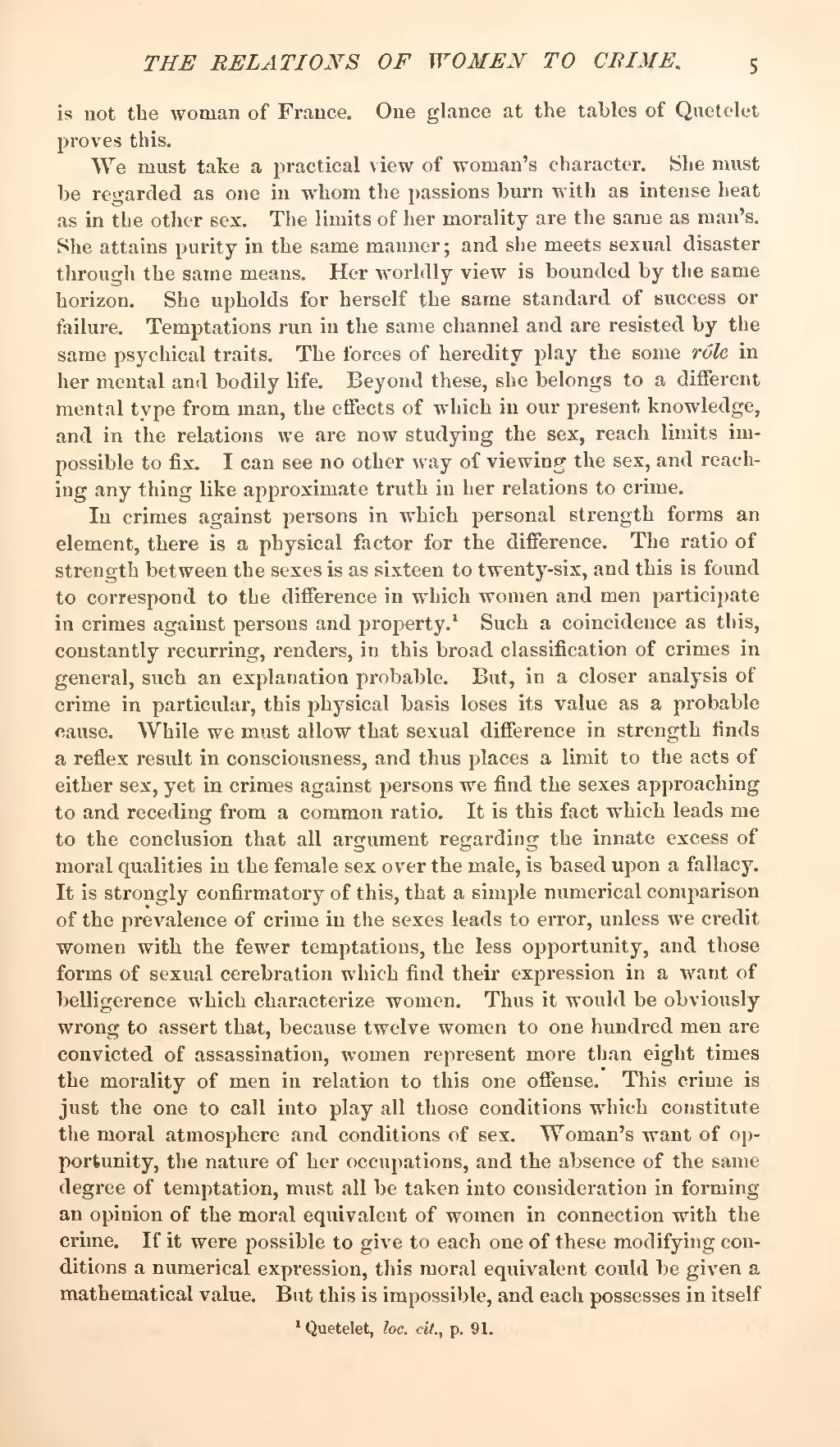is not the woman of France. One glance at the tables of Quetelet proves this.
We must take a practical view of woman's character. She must be regarded as one in whom the passions burn with as intense heat as in the other sex. The limits of her morality are the same as man's. She attains purity in the same manner; and she meets sexual disaster through the same means. Her worldly view is bounded by the same horizon. She upholds for herself the same standard of success or failure. Temptations run in the same channel and are resisted by the same psychical traits. The forces of heredity play the some role in her mental and bodily life. Beyond these, she belongs to a different mental type from man, the effects of which in our present knowledge, and in the relations we are now studying the sex, reach limits impossible to fix. I can see no other way of viewing the sex, and reaching any thing like approximate truth in her relations to crime.
In crimes against persons in which personal strength forms an element, there is a physical factor for the difference. The ratio of strength between the sexes is as sixteen to twenty-six, and this is found to correspond to the difference in which women and men participate in crimes against persons and property.[1] Such a coincidence as this, constantly recurring, renders, in this broad classification of crimes in general, such an explanation probable. But, in a closer analysis of crime in particular, this physical basis loses its value as a probable cause. While we must allow that sexual difference in strength finds a reflex result in consciousness, and thus places a limit to the acts of either sex, yet in crimes against persons we find the sexes approaching to and receding from a common ratio. It is this fact which leads me to the conclusion that all argument regarding the innate excess of moral qualities in the female sex over the male, is based upon a fallacy. It is strongly confirmatory of this, that a simple numerical comparison of the prevalence of crime in the sexes leads to error, unless we credit women with the fewer temptations, the less opportunity, and those forms of sexual cerebration which find their expression in a want of belligerence which characterize women. Thus it would be obviously wrong to assert that, because twelve women to one hundred men are convicted of assassination, women represent more than eight times the morality of men in relation to this one offense. This crime is just the one to call into play all those conditions which constitute the moral atmosphere and conditions of sex. Woman's want of opportunity, the nature of her occupations, and the absence of the same degree of temptation, must all be taken into consideration in forming an opinion of the moral equivalent of women in connection with the crime. If it were possible to give to each one of these modifying conditions a numerical expression, this moral equivalent could be given a mathematical value. But this is impossible, and each possesses in itself
- ↑ Quetelet, loc. cit., p. 91.

